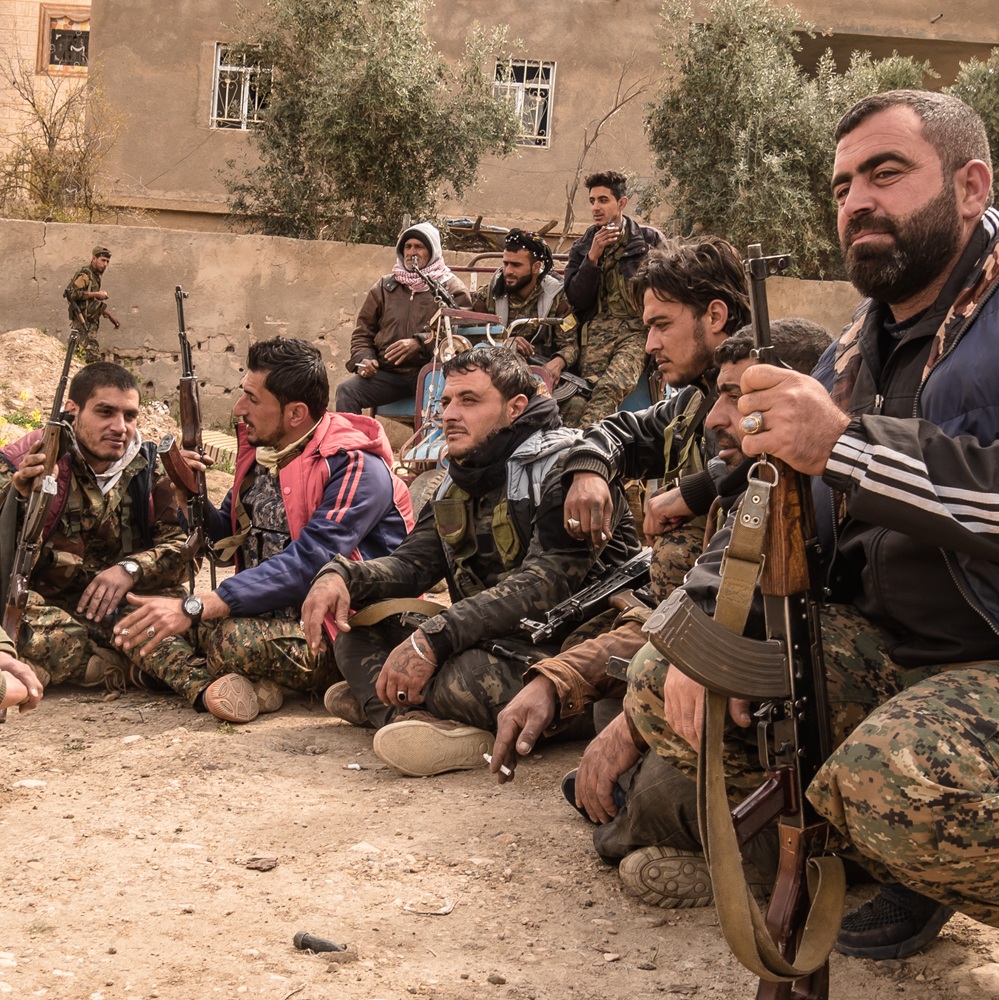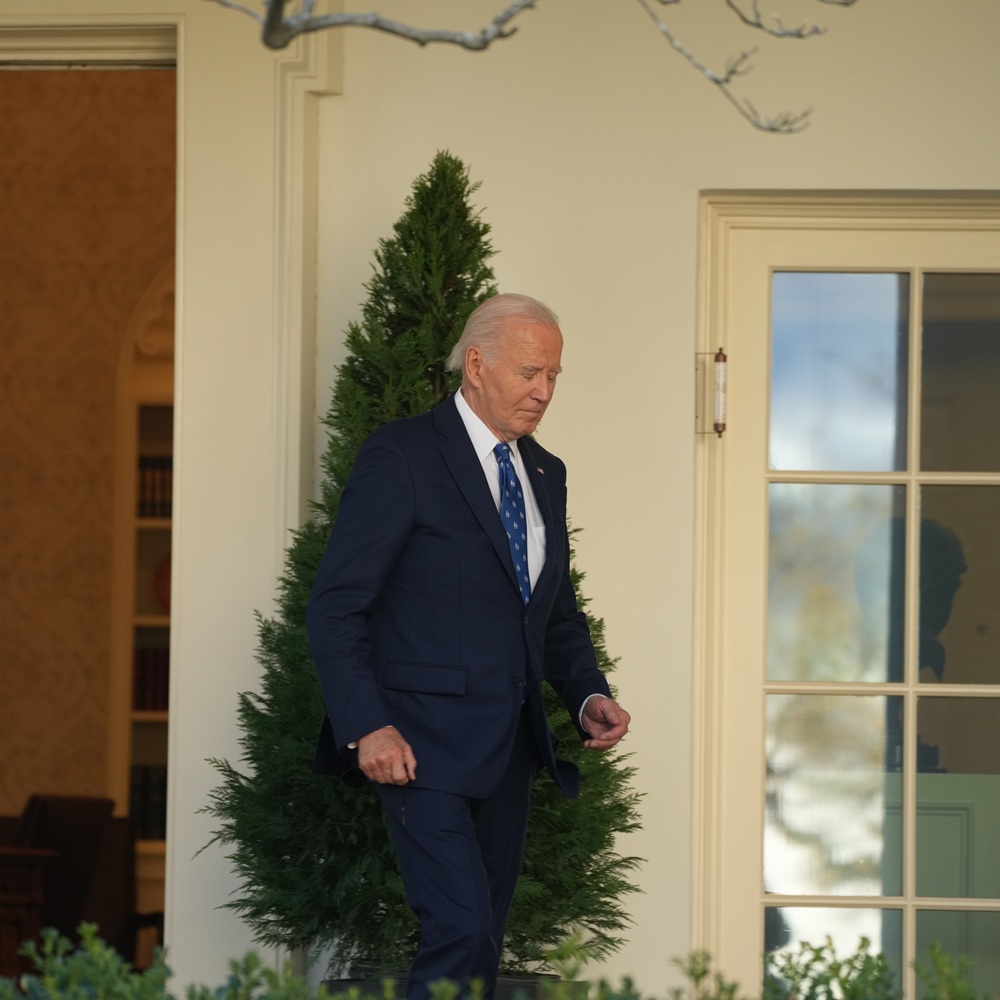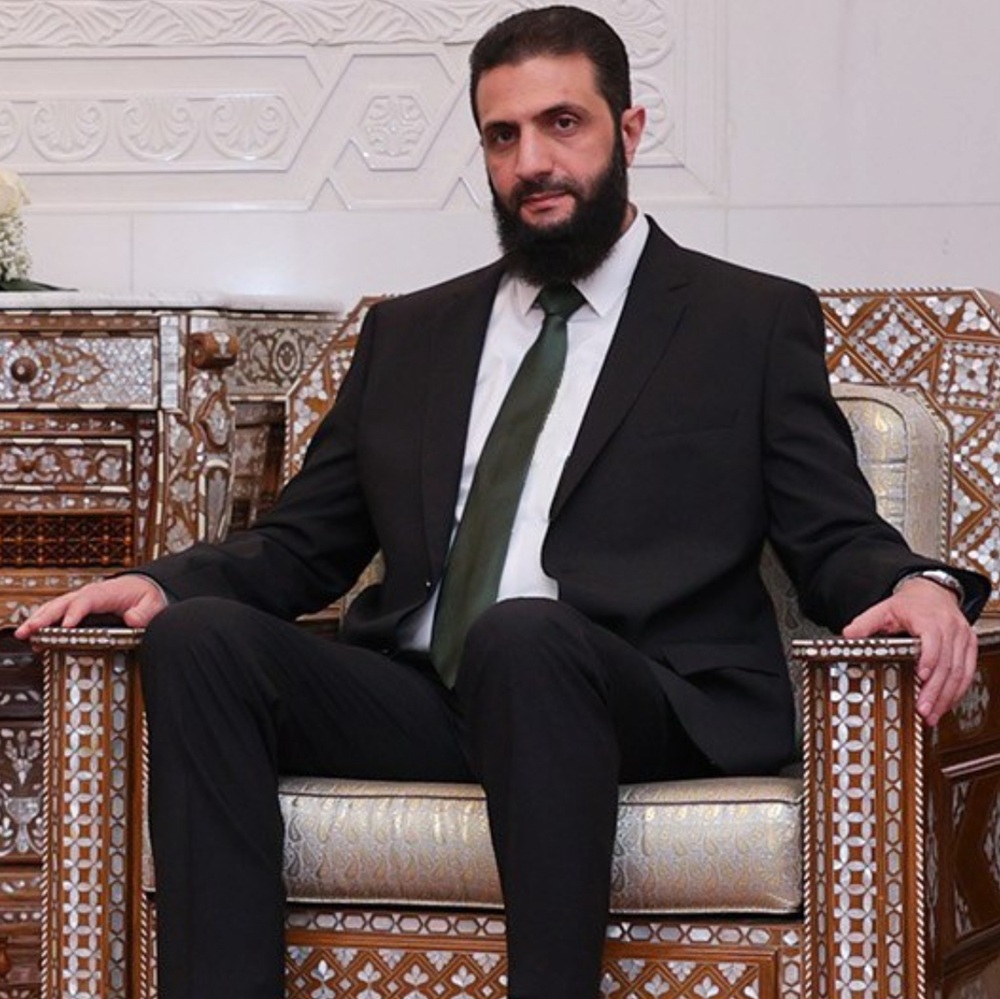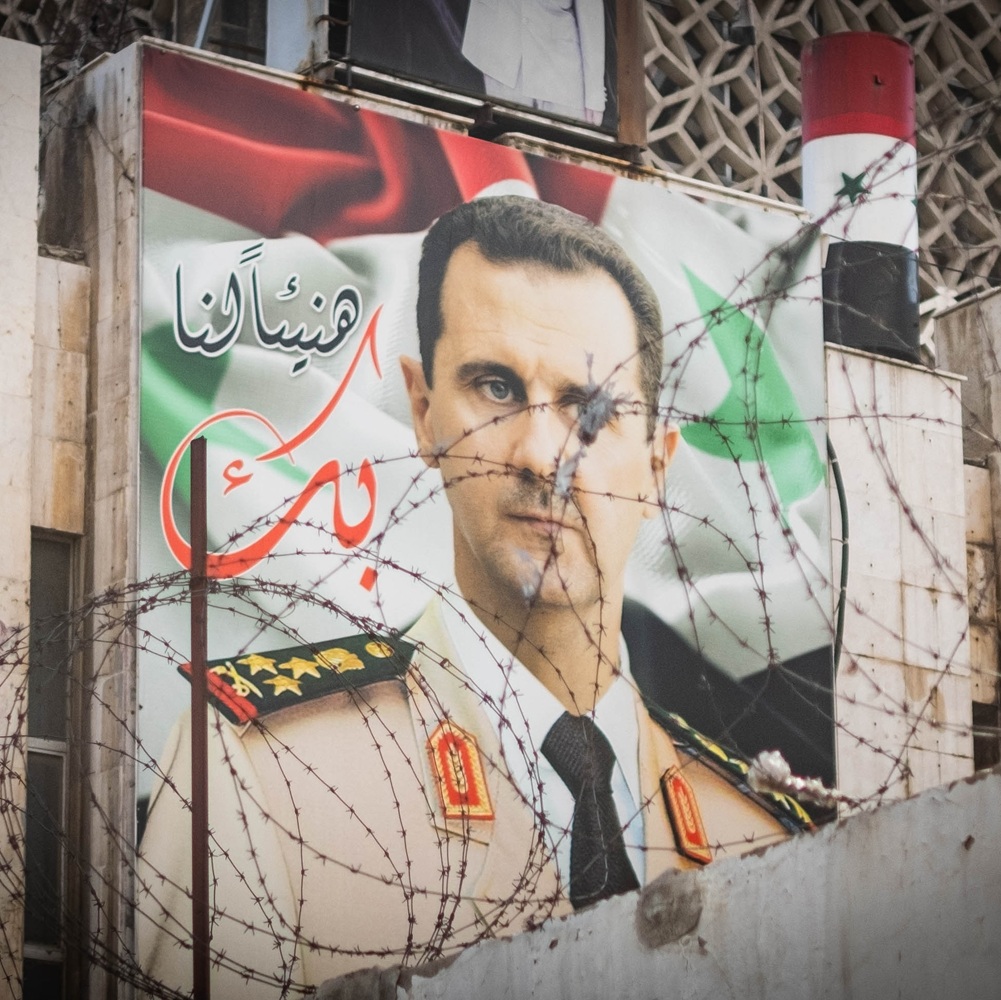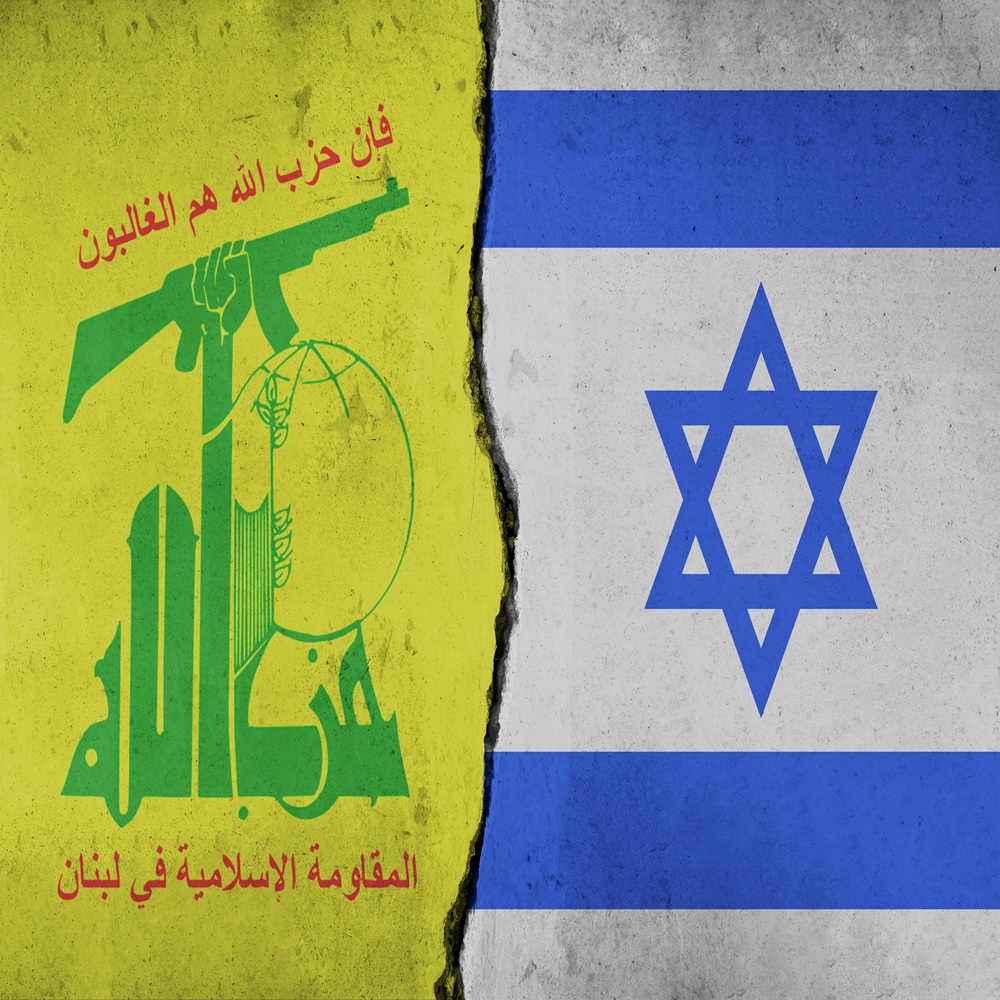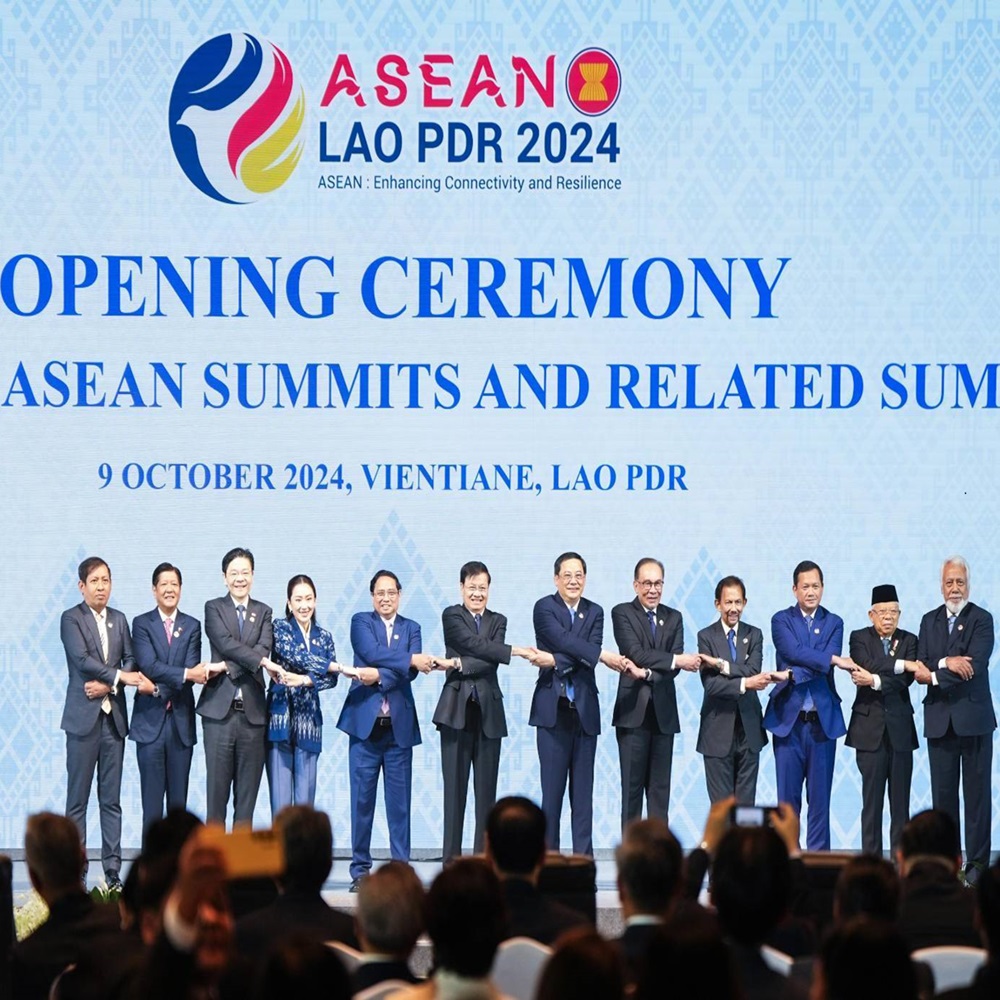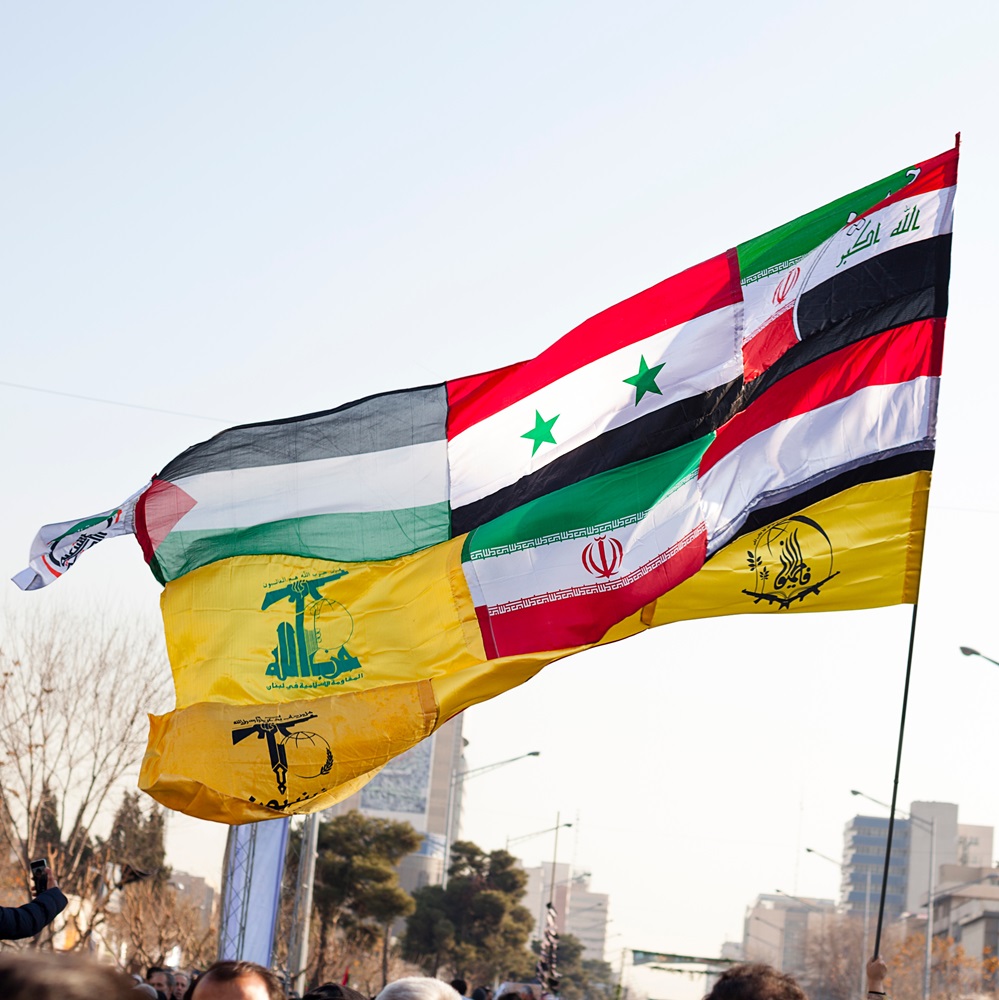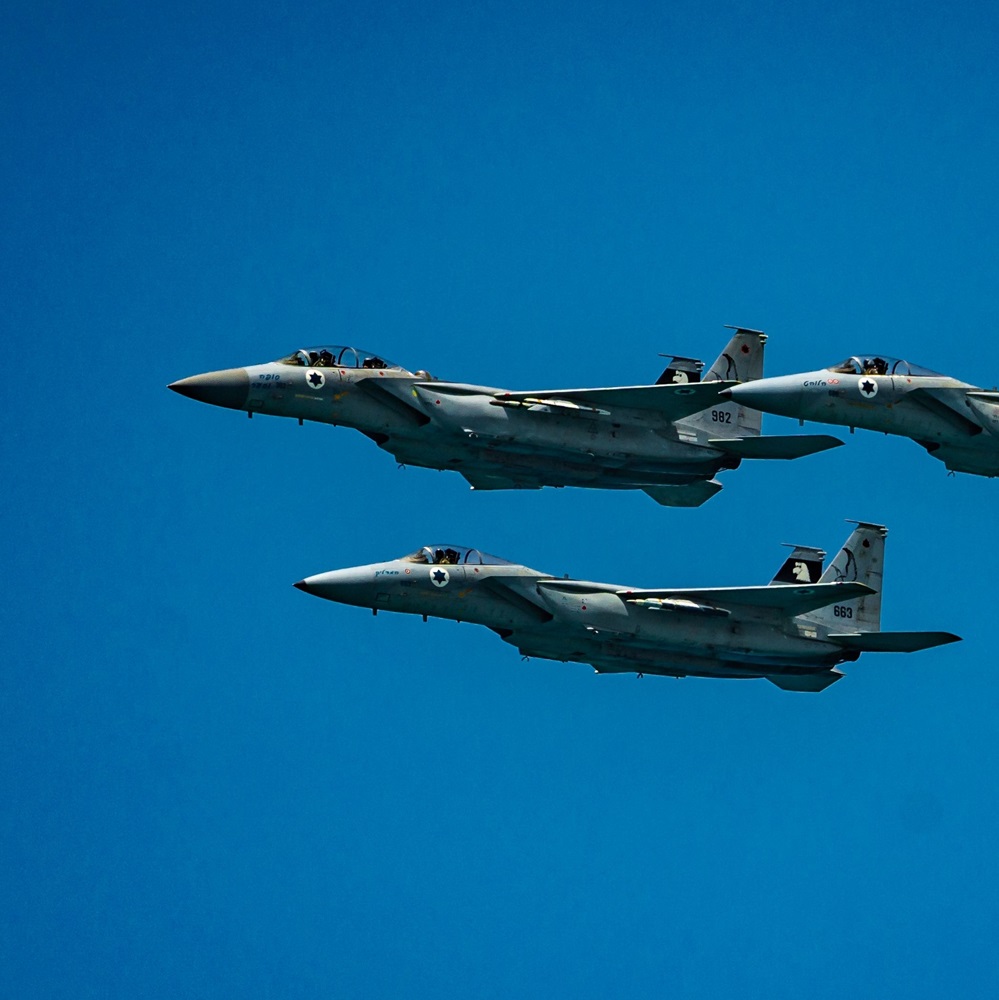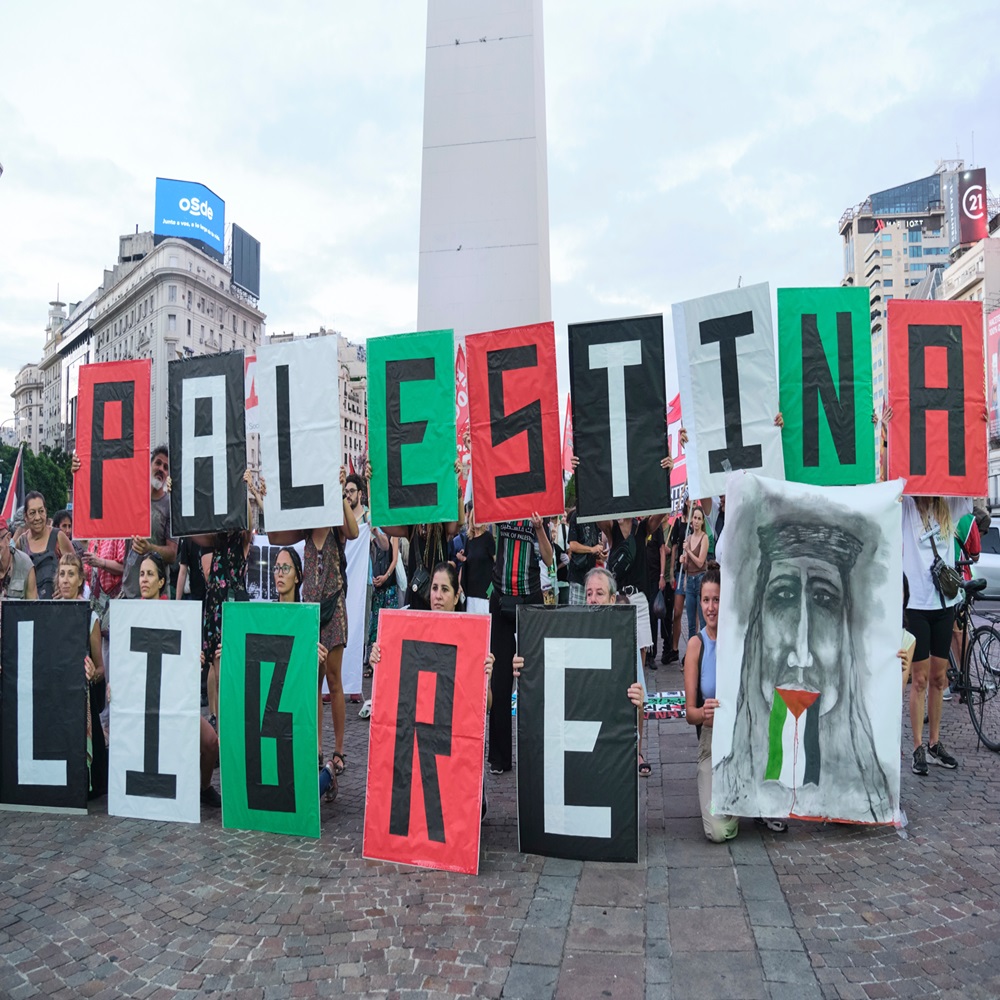Community of Latin American and Caribbean States (CELAC) and Operation al-Aqsa Flood
by Prof. Dr. Walid ‘Abd al-Hay, Yarmouk Universi
한국어로 읽기
Leer en español
In Deutsch lesen
Gap
اقرأ بالعربية
Lire en français
Читать на русском
Introduction In 2010, the Community of Latin American and Caribbean States (CELAC) was established and ratified in 2011, with membership expanding to 33 countries. According to the organization’s statements, its aims include “deepening the integration of Latin American countries, promoting international peace, and respecting human rights.” Additionally, there is an implicit ambition among several members to reduce the political and economic influence of the US in the region, as suggested by the context of some of the organization’s statements.[2] With a total population of about 635 million people, covering an area of about 22 million km², and accounting for 17% of the United Nations (UN) voting power, their Gross Domestic Product (GDP) on a Purchasing Power Parity (PPP) basis for 2023 is approximately $12.8 trillion, equivalent to 7.8% of the world’s GDP. However, four of the 33 countries contribute more than $9.6 trillion, or about 75% of the GDP. These four countries also comprise 68% of the total population of the regional group, as shown in the following table:[3] CELAC’s Position on Operation al-Aqsa Flood The Latin American and Caribbean region has the highest percentage of leftist political regimes in the world. Among the 19 most significant countries in the region, 12 are now run by left-wing governments, accounting for 63% of the total. These leftist-led countries represent 92% of the region’s people and 90% of its GDP.[4] This demographic and economic dominance is clearly reflected in CELAC’s stance on two interconnected issues: the position on Operation al-Aqsa Flood, marked by varying degrees of rejection of Israeli policy, and a relative independence from US influence in the region. First: CELAC’s Stance as a Political Bloc on Operation al-Aqsa Flood[5] At the eighth CELAC summit, held in March 2024 in Kingstown, the capital of St.Vincent and the Grenadines, a lack of consensus emerged among the members regarding Operation al-Aqsa Flood. Despite the compromise language in the conference statement, 27 countries endorsed it while 6 countries opposed it.[6] The resolution included the following points:[7] a. Condemning the killing of civilians on both the Palestinian and Israeli sides and emphasizing the need to protect civilians in accordance with international law.b. Supporting the UN General Assembly call for a ceasefire.c. Demanding the immediate and unconditional release of hostages.d. Urging the delivery of humanitarian aid to the affected areas in the Gaza Strip (GS).e. Calling for a peaceful solution based on the two-state solution. Second: Stances of the Central States within CELAC[8] Countries with left-leaning governments are often the most vocal in supporting the Palestine issue, as reflected in their leaders’ statements. Venezuelan President Nicolás Maduro slammed “the international position regarding the ongoing genocide in Gaza,” and pointed out that “international justice exists only to protect the interests of American, European, and Western imperialism, in order to conceal the massacres committed against Palestinian families.” Brazilian President Lula da Silva aligned with this view, calling on “the five permanent members of the United Nations Security Council (UNSC) to set aside their differences and put an end to the genocide in Gaza.” He reiterated his call for an immediate ceasefire, as outlined in the CELAC statement from the 8th Congress. Additionally, he noted Brazil’s efforts to support UN Security Council resolutions aimed at halting the fighting in GS, which were vetoed by the US. Colombian President Gustavo Petro criticized both the United States and Europe for supporting “Israel in committing genocide against the Palestinians,” with similar sentiments expressed by Nicaragua. Generally, the positions of CELAC countries, particularly the major powers, can be categorized into three distinct stances, as illustrated in the table below:[9] 1. Countries closest to the Israeli position: This group varies in their level of support for Israel, as illustrated by the following indicators: a. The Salvadoran stance is notably one of the most vehement against the Palestinians, despite President Nayib Bukele being a Christian of Palestinian descent who calls for the “demise of the Palestinian resistance.” This position aligns closely with that of Paraguay, one of the few countries to label the Palestinian resistance as “terrorism” and announce plans to move its embassy from Tel Aviv to Jerusalem. Paraguay’s stance on Israeli settlements in the occupied territories is marked by a consistent lack of condemnation at the UN and frequent abstentions from voting on resolutions that support Palestinian rights. b. The Jewish minority in Argentina plays a significant role in influencing the government. With a population of between 300–400 thousand, Argentina has the largest Jewish community in Latin America and the fifth largest in the world. The attacks on Jewish institutions in Argentina during 1992–1994, which were linked to Iran—a key supporter of Palestinian resistance—also influenced the government’s stance, despite opposition from the pro-Palestinian Worker’s Left Front – Unity party. c. Guatemala, with a population of about 18 million, was the first Latin American country to move its embassy to Jerusalem. It is also one of the centers of gravity for Anglican Christianity, which tends to be more sympathetic to Zionism. 2. Countries that have adopted a middle ground, attempting to balance support for and opposition to both sides of the conflict: a. Both Mexico and Brazil criticized the attack on Israel on 7/10/2023, but strongly condemned the Israeli response. b. In the diplomacy of Brazil and Mexico, a role reversal was observed. The presidencies of both countries adopted more articulate positions than their foreign ministries, where traditional diplomatic language prevailed. c. Mexico has not severed ties with Israel; however, its representatives at the UN have sharply criticized the Israeli government. d. Ecuador can be included in this group due to its effort to mediate peace between the Palestinian resistance and Israel by sending Ecuadorian Vice President Verónica Abad in October 2023. Additionally, Ecuador has backed Palestine’s bid for full membership in both the UN Security Council and the UN General Assembly, though it has explicitly condemned the resistance attack that occurred in October 2023. 3. Countries that support Palestinian rights are typically left-leaning and their policies often exhibit the following characteristics: a. Nicaragua unequivocally supported the Palestinian position and even received some Palestinian leaders after the war. b. Colombia has taken a definitive stance in strong support of Palestine. It is one of the most vocal critics of Israeli policies, culminating in its decision to sever diplomatic ties with Israel. Colombian President Gustavo Petro has sharply condemned Israeli actions in Gaza, labeling them as “genocide.” It is important to note that Colombia’s position is significant given its historical and strategic ties with Israel. Although Colombia relies on Israeli military equipment for combating armed opposition and drug trafficking groups, and there has been a free trade agreement between the two countries since 2020, as well as various agreements since the establishment of diplomatic relations in 1957, trade data shows a 53% decline in trade between Israel and Colombia following the recent conflict, compared to 2022. c. The Cuban and Venezuelan position was a continuation of their traditional support for the Palestinian right, and Cuba justified the Palestinian attack on 7/10/2023 as a reaction to 75 years of oppression of the Palestinians. d. Bolivia did not condemn the Palestinian attack in October, instead focusing its statements on de-escalating the conflict between the two sides. However, the lack of Israeli response to its calls led Bolivia to sever diplomatic relations with Israel. Additionally, Bolivia supported South Africa’s case against Israel at the International Court of Justice (ICJ) and endorsed a case before the International Criminal Court (ICC). Colombia and Belize have also cut ties with Israel. Notably, during the last week of June 2024, Bolivia experienced a failed coup attempt, raising suspicions that the US and Israel may have been involved as retaliation for Bolivia’s clear stance on the Gaza war.[10] e. The significant presence of the Palestinian community in Chile, the largest in Latin America with nearly half a million having Palestinian roots, has notably influenced Chilean politics. This influence is reflected in the Chilean Senate’s Human Rights Commission decision to ban companies from importing goods produced in Israeli settlements in the occupied territories. A US State Department official characterized this decision as one that unfairly singles out Israel.[11] f. Honduras has exhibited a decrease in its support for Israel following Israeli attacks on civilians, leading the government to summon the Israeli ambassador to protest these actions. In 2021, Honduras was one of the first countries to relocate its embassy from Tel Aviv to Jerusalem, joining Guatemala and Paraguay, which had made similar moves in 2018. However, Guatemala reversed its decision and returned its embassy to Tel Aviv shortly thereafter. The shift in Honduras’ stance can be attributed to the change in leadership from a right-wing to a left-wing administration after Xiomara Castro assumed the presidency in 2022. g. Since the beginning of the war, Latin American countries’ positions in support of Palestine have evolved at the diplomatic level in particular, and have begun cutting ties and recalling ambassadors from Israel, which was initiated by Chile, Colombia, and Honduras, while Bolivia and Belize cut diplomatic ties with Israel completely. Bolivia was one of the five countries that referred the situation in GS to the ICC for investigation in November 2023. In the referral, Bolivia cites evidence of crimes against Palestinians including murder, torture, inhumane treatment, persecution, apartheid, forced displacement, and the destruction of Palestinian cultural heritage. Mexico and Chile did the same in January 2024, whereas Brazil’s and Colombia’s foreign ministries issued statements supporting South Africa’s legal action against Israel before the ICJ. The Brazilian position has been the leading one, which has strained relations between Brazil and Israel despite efforts by the Brazilian Israelite Confederation (CONIB) to mend fences. However, the Brazilian president’s remarks that “what is happening in the Gaza Strip with the Palestinian people hasn’t happened at any other moment in history” except one: “When Hitler decided to kill the Jews,”[12] combined with the Brazilian Foreign Ministry’s endorsement of European countries’ recognition of Palestine as a state and support for a two-state solution, have solidified Brazil’s stance against Israeli policies. CELAC’s Vote at the UN A review of General Assembly and Security Council resolutions reveals that the countries most resistant to supporting resolutions favoring Palestinian demands are Guatemala, Paraguay and Argentina, followed by Haiti, Uruguay, Panama and El Salvador. These countries often either oppose or abstain from voting. Argentina, with a population of nearly 46 million, is the most significant ally of Israeli policy. This is followed by Guatemala with about 18 million people, Paraguay with around 7 million, Panama with 4.5 million and Uruguay, with approximately 3.5 million people. Argentina ranks third among CELAC countries in terms of GDP and fourth in terms of population. Argentina’s stance on Palestinian rights reflects the political shift introduced by President Javier Milei, who aims to align Argentina more closely with the Western capitalist bloc through his foreign policy.[13] Argentina did not support the General Assembly resolution calling for a ceasefire in December 2023 and opposed the resolution to grant Palestine full membership in the UN. The Argentine position can be attributed to the following reasons:[14] a. President Javier Milei’s religious inclination towards Judaism was evident in his prayers at the Western Wall in Jerusalem in 2021, accompanied by Rabbi Shimon Axel Wahnish, who was later appointed as Argentine ambassador to Israel. Although the Argentine president is a Catholic Christian, some sources suggest he is considering converting to Judaism. However, other sources claim that President Milei’s display of Jewish faith is a way to express repentance and counter accusations that he concealed his support for a Nazi sympathizer. b. The Argentine president’s intention to strengthen ties with the Jewish minority in Argentina, as previously mentioned, faced opposition from nearly four thousand Argentine Jewish intellectuals, who voiced concern over Milei’s “political use of Judaism.” This concern was highlighted when he became one of the first world leaders to visit Israel after the war erupted, offering high praise for Benjamin Netanyahu’s policies and pledging to move Argentina’s embassy from Tel Aviv to Jerusalem. Interestingly, the Argentine president demonstrated a clear bias towards Israel when he cut his state visit to Denmark short, following the Iranian attack on Israel in April 2024, which was in response to the Israeli attack on the Iranian consulate in Damascus. President Meli then convened a crisis committee alongside the Israeli ambassador to Argentina and his security minister, who began criticizing the positions of other Latin American countries, such as Bolivia and Chile, describing them as “Islamic hotbeds” and accusing them of hosting Hezbollah elements. He also criticized the defense agreement Iran concluded with Bolivia in July 2023. c. Milei, a university economics professor, bases his economic ideology on far-right principles and anti-leftist Peronism in Argentina, making him the most eager to strengthen the relationship with the US and, consequently, with Israel. d. It is noted that trade relations between Israel and Argentina are escalating significantly. Israeli exports to Argentina increased annually by 15.2% from 2017 to the end of 2022, reaching $156 million in 2022. Similarly, Argentine exports to Israel increased annually by 25.2%, reaching $200 million in 2022. Third: Trends in Public Opinion in CELAC Countries Quantitative studies on access to information and data from various sources show that Latin American countries lead the world in relying on social media for obtaining and sharing information. This trend has influenced Israel’s public image in the region.[15] Public opinion polls in Latin America reveal that approval of the way US President Joe Biden’s is dealing with the GS war is modest. A survey of six major Latin American countries showed the following results:[16] The approval rate with Biden’s GS war policy in six countries is notably low, at around 26%. In contrast, the same survey indicates that the disapproval in these countries is more than double the approval rate, reaching approximately 57%. Meanwhile, the people of CELAC countries expressed their solidarity with Palestine after Operation al-Aqsa Flood. This solidarity was evident in demonstrations involving former presidents, civil society organizations, popular sectors, football associations, artists and universities, particularly in Brazil, Venezuela, Bolivia, Mexico, Uruguay, Peru and Argentina, etc. Conclusion The “instability” in political orientations towards international issues is a key feature of Latin American countries’ policies, largely due to the frequent shifts in political regimes and the consequent changes. In analyzing the positions of Latin American countries on the Arab-Israeli conflict, four factors seem to be the most significant in shaping this relationship:[17] 1. The political shifts between leftist and rightist regimes, whether due to coups or presidential elections, often characterize these countries as “unstable.” This is particularly evident in major countries within this group, such as Brazil, Mexico, Argentina and Colombia. This instability is reflected in their stances on the Arab-Israeli conflict: leftist regimes typically support Palestine, while rightist ones back Israel. 2. The positions of these countries on Israel are notably influenced by US policies. Some countries align with the US stance to avoid potential pressure, a pattern observable since the Monroe Doctrine in 1823. 3. A growing trend among Catholic Christians toward Anglicanism, which shares a closer religious alignment with the Israeli position. 4. Israeli presence in the technological sector of the Latin American economy is significant. In major Latin American countries like Brazil, Mexico, Argentina and Colombia, more than 450 Israeli companies are active in this industry. The data we have discussed highlight the need for resistance forces to recognize the significance of this region in the following ways: 1. Despite a noticeable division among Latin American countries in their responses to Operation al-Aqsa Flood and its aftermath, the balance of support leans considerably toward the resistance. This is due to the increasing leftist inclination in the region, particularly in its major countries. Demonstrations in support of Palestine have occurred in Brazil, Bolivia, Venezuela, Cuba, Peru and Chile. 2. Cutting ties with Israel, recalling ambassadors, or participating in cases against it in the ICJ and the ICC by Latin American countries is perhaps the most significant in terms of political impact. This development requires follow-up, including providing these countries with relevant information and support to reinforce this trend. 3. Despite their Anglican background, public opinion trends in these countries reveal a strong sympathy for Palestinian suffering, which is more than twice as significant as the sympathy for Israel. This is evident from the approval rates toward President Biden’s pro-Israel policies. These findings suggest the need for engaging with leftist forces in the region based on shared libertarian values. 4. Comparing the trade between Latin American and Israel, which was $6 billion in 2022, to the trade with Arab countries, the trade volume with the Gulf countries alone is more than three times greater than that with Israel. However, the political influence of these trade relations with the Arab world remains relatively modest.[18] 5. Arab and Palestinian diplomacy should focus on four Latin American countries-Brazil, Mexico, Argentina and Colombia—due to their significant political, economic and demographic influence in the international arena. References [1] An expert in futures studies, a former professor in the Department of Political Science at Yarmouk University in Jordan and a holder of Ph.D. in Political Science from Cairo University. He is also a former member of the Board of Trustees of Al-Zaytoonah University of Jordan, Irbid National University, the National Center for Human Rights, the Board of Grievances and the Supreme Council of Media. He has authored 37 books, most of which are focused on future studies in both theoretical and practical terms, and published 120 research papers in peer-reviewed academic journals. [2] CELAC/ Zone of Peace: “A key step to countering the globalization of militarism” – UN Expert, site of The Office of the High Commissioner for Human Rights, 3/2/2014, https://www.ohchr.org/en/press-releases/2014/02/celac-zone-peace-key-step-countering-globalization-militarism-un-expert [3] World Economic Outlook Database: October 2023, site of International Monetary Fund, https://www.imf.org/en/Publications/WEO/weo-database/2023/October/weo-report?c=311,213,314,313,316,339,218,223,228,233,238,321,243,248,253,328,258,336,2; GDP, PPP (current international $) – Latin America & Caribbean, site of World Bank Group, https://data.worldbank.org/indicator/NY.GDP.MKTP.PP.CD?locations=ZJ; and List of Latin American and Caribbean countries by GDP (PPP), site of Wikipedia, https://en.wikipedia.org/wiki/List_of_Latin_American_and_Caribbean_countries_by_GDP_(PPP)#cite_note-1 [4] Latin America’s left-wing experiment is a warning to the world, site of The Economist newspaper, 18/5/2023, https://www.economist.com/the-americas/2023/05/18/latin-americas-left-wing-experiment-is-a-warning-to-the-world [5] For a historical overview of Israel’s relations with Latin America, see Walid ‘Abd al-Hay, Academic Paper: Israeli Relations with Latin America, site of al-Zaytouna Centre for Studies and Consultations, 5/4/2021, https://eng.alzaytouna.net/2021/04/05/academic-paper-israeli-relations-with-latin-america/ [6] Estimates vary, but the number of signatories is likely to be 27, see CELAC member states divided over Israel-Gaza war stance, site of SEARCHLIGHT, 5/3/2024, https://www.searchlight.vc/front-page/2024/03/05/celac-member-states-divided-israel-gaza-war-stance; and Brazil, 23 other Celac countries call for immediate ceasefire in Gaza, site of Agencia Brasil, 4/3/2024, https://agenciabrasil.ebc.com.br/en/internacional/noticia/2024-03/brazil-23-other-celac-countries-call-immediate-ceasefire-gaza [7] CELAC summit fails to take unanimous position on Gaza, site of iWitness News, 2/3/2024, https://www.iwnsvg.com/2024/03/02/celac-summit-fails-to-take-unanimous-position-on-gaza [8] Latin American peace, anti-imperialism, and Gaza at the heart of CELAC, site of Al Mayadeen English, 1/3/2024, https://english.almayadeen.net/news/politics/latin-american-peace–anti-imperialism–and-gaza-at-the-hear; Oliver Stuenkel, The Israel-Hamas War Is Inflaming Polarization in Latin America, site of Americas Quarterly (AQ), 16/11/2023, https://www.americasquarterly.org/article/the-israel-hamas-war-is-inflaming-polarization-in-latin-america; Ecuador VP says she will go to Israel amid spat with president, Reuters News Agency, 28/11/2023, https://www.reuters.com/world/middle-east/ecuador-vp-says-she-will-go-israel-amid-spat-with-president-2023-11-28; and At CELAC, Lula extols the potential of Latin Americans and Caribbeans as an integrated bloc, site of Planalto, 5/3/2024, https://www.gov.br/planalto/en/latest-news/2024/03/at-celac-lula-extols-the-potential-of-latin-americans-and-caribbeans-as-an-integrated-bloc [9] For detailed information on the positions of CELAC countries, either individually or as a bloc, please refer to the following references, see Rogelio Núñez Castellano and Carlos Malamud, Latin America and the Gaza crisis, site of The Elcano Royal Institute, 24/11/2023, https://www.realinstitutoelcano.org/en/analyses/latin-america-and-the-gaza-crisis; Enrique Reina (@EnriqueReinaHN), site of X (Twitter), 3/11/2023, 10:01, https://x.com/EnriqueReinaHN/status/1720531624289575107; Brazil’s president withdraws his country’s ambassador to Israel after criticizing the war in Gaza, site of Associated Press (AP), 29/5/2024, https://apnews.com/article/brazil-lula-israel-ambassador-withdrawn-af9d295d989a86c4fcd8ca4531350f42; Colombia breaks diplomatic ties with Israel but its military relies on key Israeli-built equipment, AP, 3/5/2024, https://apnews.com/article/colombia-israel-diplomatic-ties-military-equipment-0c04009ccfc6110e20ee358403509500; President Milei’s surprising devotion to Judaism and Israel provokes tension in Argentina and beyond, AP, 3/6/2024, https://apnews.com/article/milei-judaism-hezbollah-israel-hamas-war-netanyahu-d8831369a6bc8a96205d4080d2b2045b; Argentina demands that Bolivia explain its new defense agreement with Iran, AP, 25/7/2023, https://apnews.com/article/argentina-bolivia-iran-defense-mou-2cb8c5917fdb6d3e01af4c67af969797; Israel/ Argentina, site of Observatory of Economic Complexity (OEC), https://oec.world/en/profile/bilateral-country/isr/partner/arg; Latin America divided and nuanced on Israel-Hamas conflict, site of Buenos Aires Times, 1/11/2023, https://www.batimes.com.ar/news/latin-america/latin-america-divided-and-nuanced-on-the-israel-hamas-conflict.phtml; Marta Tawil Kuri, Perspectives from the Global South: Latin America’s Fragmented Approach to Palestine, site of Arab reform initiative (ARI), 15/12/2023, https://www.arab-reform.net/publication/perspectives-from-the-global-south-latin-americas-fragmented-approach-to-palestine; IntelBrief: Leaders in Latin America Speak Loudly on Gaza, site of The Soufan Center (TSC), 1/3/2024, https://thesoufancenter.org/intelbrief-2024-march-1; Honduran president in Israel for opening of Jerusalem embassy, site of i24NEWS, 24/6/2021, https://www.i24news.tv/en/news/israel/diplomacy-defense/1624517565-honduran-president-in-israel-for-opening-of-jerusalem-embassy; Angeline Montoya, In Honduras, the mixed track record of President Xiomara Castro, site of Le Monde, 10/2/2023, https://www.lemonde.fr/en/international/article/2023/02/10/in-honduras-the-mixed-track-record-of-president-xiomara-castro_6015218_4.html; Latin America countries hold rallies in support of Palestine, site of Anadolu Agency (AA), 4/3/2024, https://www.aa.com.tr/en/americas/latin-america-countries-hold-rallies-in-support-of-palestine/3154305; Latin America: Demonstrations expressing support for Palestinians scheduled in several regional cities Oct. 20-22, site of Crisis24, 20/10/2023, https://crisis24.garda.com/alerts/2023/10/latin-america-demonstrations-expressing-support-for-palestinians-scheduled-in-several-regional-cities-oct-20-22; Gaza solidarity sweeps across Latin America, site of Middle East Monitor (MEMO), 23/10/2023, https://www.middleeastmonitor.com/20231023-gaza-solidarity-sweeps-across-latin-america; Alejandro Santos Cid, University Gaza solidarity protests extend to Mexico: ‘We are urgently calling for an end to genocide’, site of EL PAÍS, 4/5/2024, https://english.elpais.com/international/2024-05-04/university-gaza-solidarity-protests-extend-to-mexico-we-are-urgently-calling-for-an-end-to-genocide.html; site of PRIMICIAS, 7/10/2023, https://www.primicias.ec/noticias/politica/ecuador-condena-ataque-hamas-israel (in Spanish) [10] See Lithium, severing ties with Israel, or rapprochement with Russia? What is the secret to the failed Bolivian coup?, site of RT, 28/6/2024, https://arabic.rt.com/world/1578053- الليثيوم-غزة-أم-موسكو-أيهم-كلمة-السر-في-الانقلاب-البوليفي-الفاشل/; and Türkiye and Bolivia: Experiences of Resisting Coups in a Changing World, site of Turk Press, 29/6//2024, https://www.turkpress.co/node/102003 [11] Patricia Garip, What Does Latin America Think About the Israel-Hamas War?, site of Foreign Policy, 29/1/2024, https://foreignpolicy.com/2024/01/29/israel-hamas-gaza-war-latin-america-chile-argentina-colombia-mexico-genocide/ [12] Lazar Berman, Israel livid as Brazil’s Lula says Israel like ‘Hitler,’ committing genocide in Gaza, site of Times of Israel, 18/2/2024, https://www.timesofisrael.com/israel-livid-as-brazils-lula-says-israel-like-hitler-committing-genocide-in-gaza/ [13] Argentina shifts historic position on Palestine as UN member state, Buenos Aires Times, 10/5/2024, https://www.batimes.com.ar/news/world/argentina-shifts-historic-position-on-palestine-asun-member-state.phtml [14] AP and TOI STAFF, Argentinian president’s surprising devotion to Judaism and Israel provokes tension, Times of Israel, 3/6/2024, https://www.timesofisrael.com/argentinian-presidents-surprising-devotion-to-judaism-and-israel-provokes-tension/; Argentina/ Israel, site of Observatory of Economic Complexity (OEC), https://oec.world/en/profile/bilateral-country/arg/partner/isr; and Israel/ Argentina, OEC, https://oec.world/en/profile/bilateral-country/isr/partner/arg [15] 4 Trends Among Latin American Internet Users That Will Impact the Market in 2022, site of Americas Market Intelligence (AMI), 9/1/2022, https://americasmi.com/insights/trends-latin-american-internet-users-marketing/#:~:text=In%20Latin%20America%2C%2083%25%20to,websites%2C%20broken%20down%20by%20country; and Annie Pforzheimer, Latin American Views on the Gaza War Are in Flux, site of The Jerusalem Strategic Tribune journal, November 2023, https://jstribune.com/pforzheimer-latin-american-views-on-the-gaza-war-are-in-flux [16] Survey conducted in Spring 2024, see Majorities disapprove of the way Biden is dealing with the Israel-Hamas war, site of Pew Research Center, 10/6/2024, https://www.pewresearch.org/global/2024/06/11/how-well-is-biden-handling-international-issues/gap_2024-06-11_us-image-2024_5_06 [17]Gian Luca Gardini (ed.), External Powers in Latin America: Geopolitics between Neo-extractivism and South-South Cooperation (Routledge, 2021), pp. 153-163; and Political stability – Country rankings, site of TheGlobalEconomy.com, https://www.theglobaleconomy.com/rankings/wb_political_stability/Latin-Am [18]Chase Harrison, Explainer: Latin America’s Relationship with Israel and Palestine, site of Americas Society (AS), Council of the Americas (COA), 16/11/2023, https://www.as-coa.org/articles/explainer-latin-americas-relationship-israel-and-palestine; and “Cultivating Ties: Deepening trade and investment between Latin America and the GCC,” site of Economist Impact, The Economist Group, 2022, https://impact.economist.com/perspectives/sites/default/files/economist_impact__dcci_latam_report_10th_march_2022_english_web.pdf
